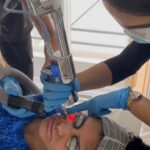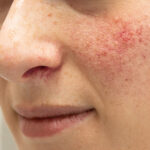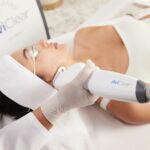
The term “filter bubble” was coined by internet activist, Eli Pariser, as far back as about 2010. It is based on the premise that internet users get less exposure to conflicting view points and become intellectually isolated in their own filter bubble of information. In the words of Pariser, “Your filter bubble is your own personal unique universe of information that you live in online. What’s in your filter bubble depends on who you are, and it depends on what you do. But you don’t decide what gets in – and more importantly you don’t see what gets edited out.”
Why does this matter when it comes to matters of health such as dermatology or nutrition? Well, let’s face it, most of us turn to the internet as our first port of call when we require information. Depending on the topic, we may get millions of hits but the results are often sorted and presented with the top 10 hits on the first page, which is primarily where people will get their data. However, problems can arise because the search data we are presented with are not simply sorted just by objective relevance. Search algorithms can also be heavily influenced by factors such as your search and browsing history, social media network, viewing habit, where you are and at what time you are performing a search. Not only is your search geared to be personalised towards you (which can be of benefit by showing the user their most relevant results) it also takes into account the preferences of the people in your network.
This can potentially create a big problem in healthcare, particular if search results are biased towards misinformation or inaccurate advice. Algorithms which lack transparency have the ability to drive a situation where users receive information via their personalised search results which simply confirm their prior beliefs. So what we are talking about is reinforcement of our already existing confirmation biases (or those of our network) when we carry out our Google search. This is the filter bubble or echo chamber we can find ourselves in if we do not use scientific method and healthy debate to challenge our own view points.
So what do we do? Well firstly it is important to be aware of our own filter bubbles and think about the impact they have on our daily behaviour and viewpoint. The problem will only continue to grow if we remain blinkered to our own daily biases. Recognising the difference between scientific evidence versus opinion is also key and ensuring we take advice from reliable, credible experts – we don’t have the time or wherewithal to fact-check every single thing – and no one can be an expert in everything! It is very hard to eradicate myths once they have spread and pseudoscience flourishes under our noses because it can hard to question or criticise the personal beliefs of others. But the fact remains that personal belief is not a reliable source of knowledge of the workings of the world – only science is. Science changes, evolves, and shifts its viewpoint – as it must when new information comes to light. If you have a spare moment today, take a minute to think about your filter bubble and biases the next time you carry out a health-related search.





